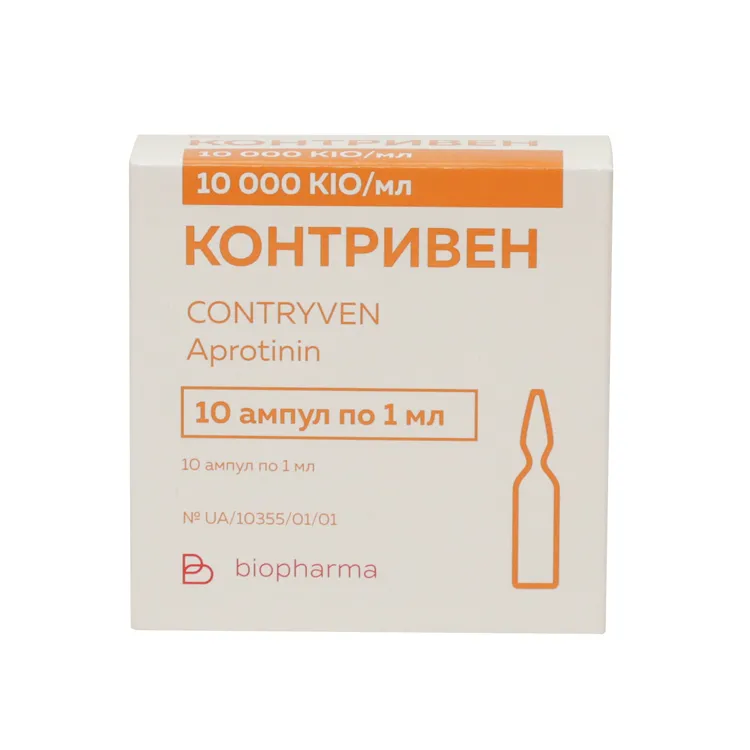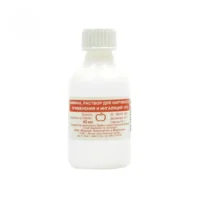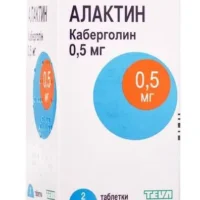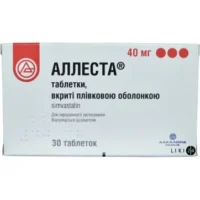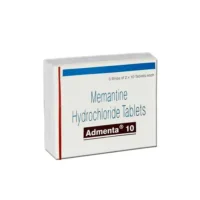Description
Contriven (Aprotinin) Solution for Injections 10000C IU/ml – 5 ml Ampoules №5
Ingredients:
Each 5 ml ampoule contains 10000C IU/ml of aprotinin as the active ingredient.
Mechanism of Action:
Contriven works by inhibiting proteolytic enzymes, particularly plasmin, which are responsible for degrading fibrin clots. By preventing the breakdown of clots, it helps in reducing bleeding during complex surgeries.
Pharmacological Properties:
Contriven’s pharmacological action involves the inhibition of specific enzymes that break down fibrin clots, thereby promoting hemostasis and reducing bleeding during surgical procedures.
Indications for Use:
Contriven is indicated for the management of bleeding during complex surgeries, with a particular focus on cardiac surgery where it helps in controlling and reducing blood loss by preserving fibrin clots.
Contraindications:
Contriven is contraindicated in individuals with a known history of hypersensitivity to aprotinin or any other component of the formulation. It should not be used in patients with a previous history of anaphylactic reactions to aprotinin.
Side Effects:
Common side effects of Contriven may include allergic reactions, injection site reactions, and potential hypersensitivity reactions. Patients should be monitored for any adverse effects during and after administration.
Usage Instructions:
Contriven should be administered by a healthcare professional in a hospital setting. The dosage and administration method should be determined based on the patient’s condition and response to treatment. The injection should be given slowly to minimize the risk of adverse reactions.
Benefits Compared to Analogues:
Contriven has demonstrated superior efficacy in reducing bleeding during cardiac surgeries compared to other antifibrinolytic agents. Its ability to preserve fibrin clots effectively makes it a preferred choice in high-risk surgical procedures, leading to better patient outcomes.
Suitable Patient Groups:
Contriven can be used in various patient groups undergoing complex surgeries, including adults, but its use in children and elderly patients should be carefully evaluated based on individual factors and risks.
Storage Conditions and Shelf Life:
Contriven should be stored according to the manufacturer’s instructions, typically at controlled room temperature. It is essential to check the expiration date on the packaging and avoid using expired medication.
Packaging Description:
Contriven is available in 5 ml ampoules with a concentration of 10000C IU/ml of aprotinin. Each package contains a specific number of ampoules for single-use administration.
Clinical Evidence and Proven Effectiveness:
Contriven’s efficacy in reducing bleeding during cardiac surgery has been supported by several clinical trials. A study published in the Journal of Thoracic and Cardiovascular Surgery showed that aprotinin significantly decreased blood loss and transfusion requirements in patients undergoing coronary artery bypass grafting, highlighting its effectiveness in improving surgical outcomes.

